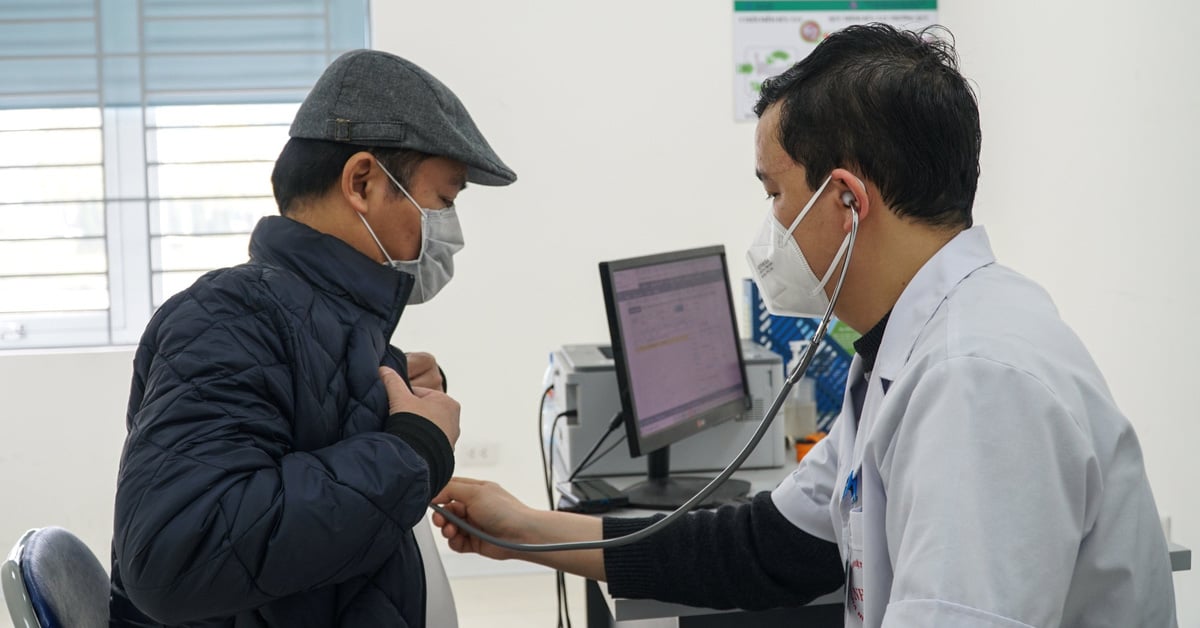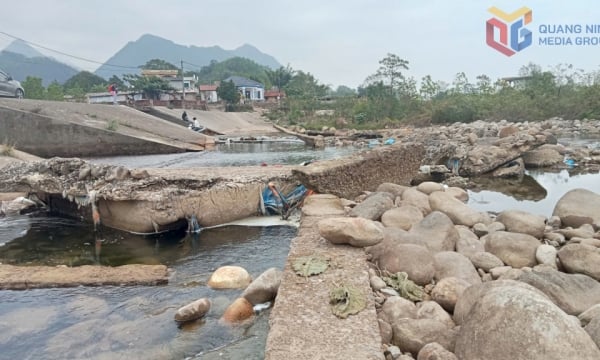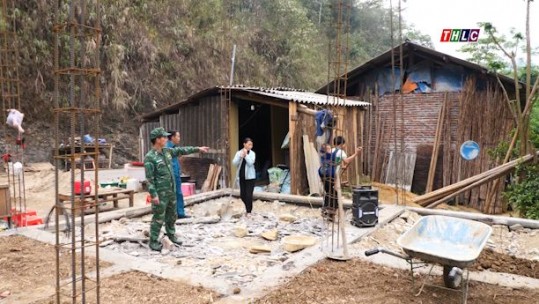The number of new cancer cases in Vietnam is currently increasing rapidly, about 182,000 cases per year, up 9 levels compared to 5 years ago, leading to many deaths.
The information was announced by Prof. Dr. Le Van Quang, Director of K Hospital (Hanoi) at Signing ceremony of cooperation agreement to develop Oncology between Gia An 115 and K Hospitals , June 28.
Vietnam's new incidence and mortality rates have increased several places on the world's GLOBOCAN cancer map. In 2021, this organization ranked Vietnam 90th out of 185 countries in terms of new incidence rates, up 9 places compared to 2018. In terms of mortality rates, Vietnam ranked 50th out of 185, up 6 places compared to 2018.
Every year, Vietnam has more than 182,000 new cases and more than 122,000 deaths from cancer. On average, for every 100,000 Vietnamese people, there are 159 new cases of cancer and 106 deaths.
Cancer, along with diabetes, cardiovascular disease, chronic obstructive pulmonary disease, and mental health, is a non-communicable disease that has become an "epidemic" and is placing a burden on the health system. According to the Ministry of Health, 60-75% of inpatients suffer from non-communicable diseases.
Increased life expectancy, aging population, changing living environment, air and water pollution, habits such as alcohol, e-cigarettes, irregular eating and living habits are factors that cause cancer. In addition, today's medicine is developed, there are many means of diagnosing and detecting cancer early, so many people are diagnosed with the disease.
The three most common cancers in Vietnamese people are lung, liver, and stomach, all of which have very poor prognosis and high mortality rates. Patients are diagnosed at a late stage, and doctors cannot intervene, only palliative treatment.
"This is the reason why the cancer mortality rate in Vietnam is high," Professor Quang said.
To prevent cancer mortality, early screening, diagnosis, and treatment play an important role, according to Dr. Quang. In particular, the strategy of expanding oncology departments at lower-level hospitals, even in private facilities, will help with screening and early detection, thereby increasing the survival rate for patients.
"We are developing a cancer treatment network. Currently, all provincial hospitals have oncology departments. In the future, this network can extend to the district level to reduce the burden on upper-level hospitals," said Mr. Quang.
In addition, doctors advise people to be aware of protecting their health even before they are sick, by actions such as exercising, walking 10,000 steps a day; quitting smoking, staying away from smoky environments; proper nutrition, including lots of vegetables and fruits, and reasonable amounts of grains and protein in their diet.
"People should have regular health check-ups, especially after the age of 35. Early detection can completely eliminate many diseases," Professor Quang recommended.
Source



![[Photo] Visiting Cu Chi Tunnels - a heroic underground feat](https://vstatic.vietnam.vn/vietnam/resource/IMAGE/2025/4/8/06cb489403514b878768dd7262daba0b)




















































































Comment (0)